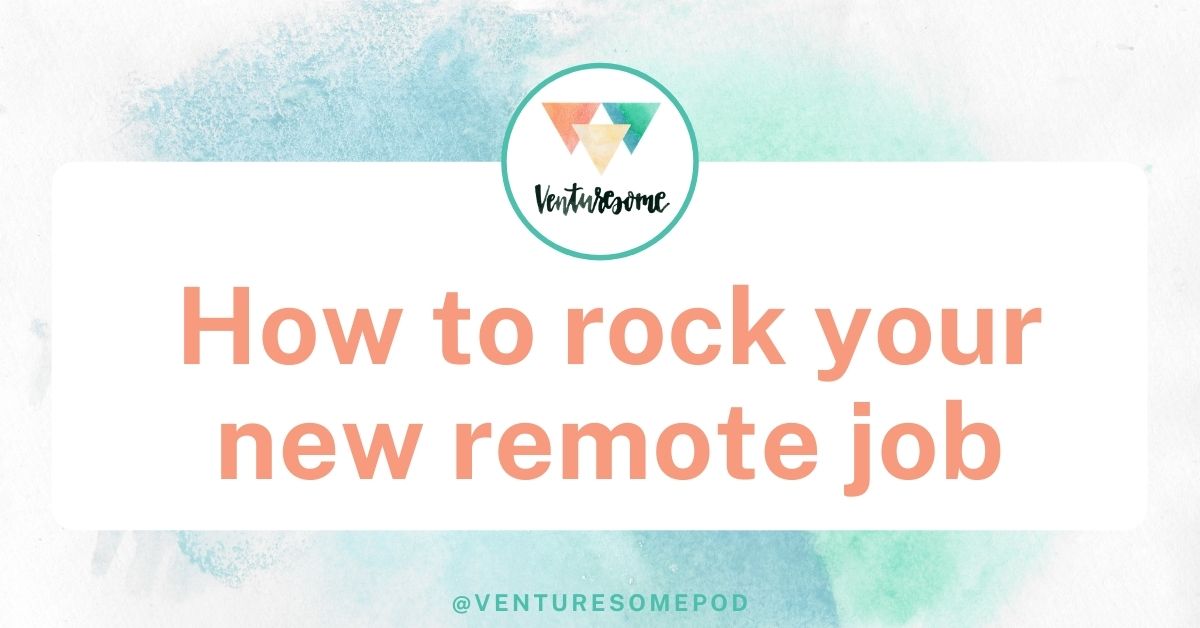
Many professionals — including myself — have recently faced the challenge of starting a new job remotely. I’ve never met my new team in person and I’ve never seen our office.
The remote workplace comes with many benefits, and you need to be intentional about addressing each challenge — including building relationships and trust, finding the right routine, setting up your home office, being proactive and asking questions.
Below, eight professionals — who work in a variety of industries including health care, law, nonprofit, education and business — share their tips for successfully starting a new remote job.
 Liz Rouech, communications specialist
Liz Rouech, communications specialist
Bastian Solutions
“When starting a new job remotely, be sure to schedule time with each person you’ll work directly with, one-on-one, over video. Take an hour to chat about work history, personal aspects of your life you’re comfortable sharing, etc. It might feel awkward at first, but you’re essentially forcing your first week’s worth of ‘water cooler talk’ that you won’t get from going to your kitchen sink.”
 Octavia Carson, Esq., judicial law clerk
Octavia Carson, Esq., judicial law clerk
U.S. Department of Justice
“Put together your work area in the most organized and comfortable way at the outset. If you decorate the walls and add storage and work supplies, you will feel more excited about getting started. Ask your employer what type of things they can supply you for your work-from-home needs. Some jobs give you all of the office supplies you need and others may give you an allowance towards office supplies.”
 Erik Schreur, veteran engagement and compliance coordinator
Erik Schreur, veteran engagement and compliance coordinator
Habitat for Humanity of Michigan
“In a remote environment, especially if organizations do not have a virtual training plan established, ask questions and ask to shadow others. In my first days, it was information overload, but in a good way. It has helped me gain a solid foundation of my role and others’ roles and it builds trust and respect within your new team.”
 Anna Kendall, social media specialist
Anna Kendall, social media specialist
Priority Health
“You have to be really honest when you don’t understand something. There are a lot of workplace nuances that get lost in the virtual workspace, so people you work with might assume you get it right away because it’s pretty simple to learn in person. Speak up, even if you have to ask multiple times and schedule a working session with someone to really dive into it. Don’t be afraid to ask for hands-on help. Yes, your coworkers are likely busy and stressed, but they’re also probably really happy to have you on their team and want to make sure you feel confident in your role. They will make the time to help and being proactive about it will save everyone time later.”
 Jon Humiston, instructional designer
Jon Humiston, instructional designer
ansrsource
“As you’re onboarded, be patient with yourself and the company. Write down all your questions as you’re getting onboarded, so you can review them with your supervisor or mentor. Keep a strict schedule. It’s easy to skip a bit of lunch to finish a project or to work a few hours in the evenings because your workstation is close. Don’t do this. Also, you’ll be sitting a lot, so prepare to build in times for walking and exercise and stick to those break times. In terms of equipment, set up a nice workstation, invest in a comfortable chair and order a good headset (headphones and microphone) to minimize background noise while you are on video calls.”
 Myla Edmond, associate vice president for communications and marketing
Myla Edmond, associate vice president for communications and marketing
California State University-Dominguez Hills
“Ask your new colleagues how they communicate with one another and use those tools rather than what you prefer or are comfortable using. Be open to different ways of engaging that may not have happened (or happened so soon in the onboarding process) during pre-COVID-19 times like sharing your cell phone number or having conversations about coping with working from home. Be patient with yourself and others as you try to build rapport on teams that have already established that rapport in-person.”
 Tanjae Chairse, media coordinator
Tanjae Chairse, media coordinator
Gage Cannabis
“Don’t be afraid to communicate your needs and set boundaries. I experienced burnout early on because I thought I could handle everything, especially since I was at home. Remember that home and work are two separate things, despite sharing a space. If you know you need a hard cut-off at 6 p.m. or need a few hours to decompress before jumping into a huge project, let your team know. The key is to integrate work into home, so set a routine and be flexible.”
 Matt DeVries, marketing director
Matt DeVries, marketing director
Midland Business Alliance
“A lot of people have shared that developing a routine is a way to stay on track. Wake up at the same time, shower and get dressed like you would any other normal job or workday. I think those things can work and help certain people. But, depending on your organization’s philosophy about schedules, sometimes working periodically throughout the day from 8 a.m. to 8 p.m. may work better. It’s all about finding what works best for you and allows you to be the most productive.”
UP NEXT:
Our next post will focus on specific strategies for building relationships and trust with your new coworkers. Be sure to follow @VenturesomePod on LinkedIn, Twitter, Facebook and Instagram for the latest posts.
